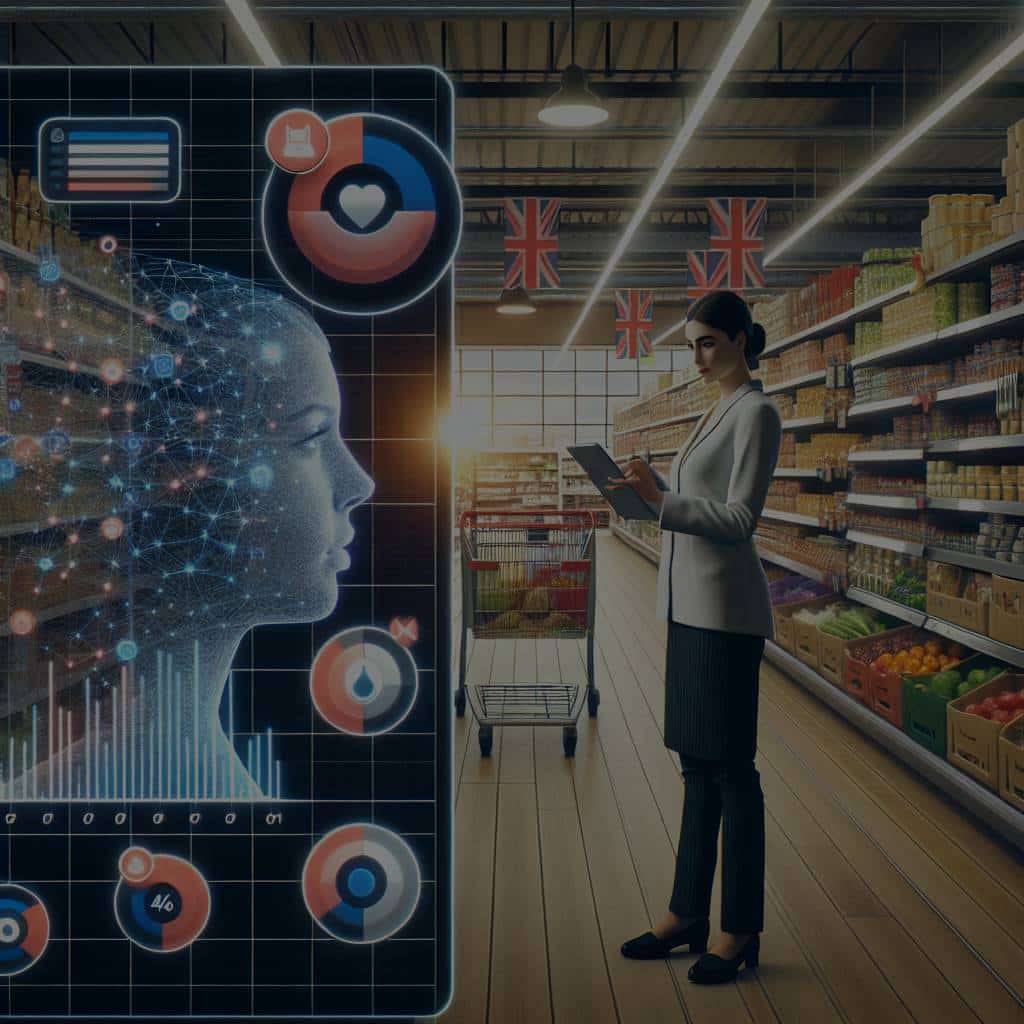With a global shift towards digitisation, it’s no surprise that the retail sector is not far behind. Artificial intelligence (AI) has been gradually making its mark and shifting traditional business models across various industries, and retail is no exception. It’s particularly becoming prominent in the grocery retail sector where data-driven insights are increasingly driving sales, managing inventory, and even predicting consumer behaviour. This article explores how UK grocery retailers can leverage AI for efficient stock management, reducing waste while simultaneously meeting customer demands.
Harnessing AI for Inventory Management
Inventory management is a critical element in the retail sector, especially for grocery stores. It’s crucial to strike a balance between having enough stock to meet customer demand and not overstocking to avoid waste and inefficiency. Here, AI can lend a helping hand.
Additional reading : What Are the Ethical Implications of AI Surveillance in UK Work Environments?
AI-powered predictive tools can forecast demand by analysing data from historical sales, seasonal trends, and promotional events. They can anticipate when the demand for particular items will rise or fall, enabling grocers to manage their inventory more efficiently. For instance, if an AI system predicts a surge in the demand for strawberries during the Wimbledon period, stores can work with their suppliers to ensure they have ample stock during this period. This approach helps retailers to prevent overstocking and understocking, thus minimising waste and maximising sales.
Moreover, AI can automate the process of stocktaking. Traditionally, this has been a time-consuming task requiring manual labour. However, with AI, grocers can use image recognition technology to scan shelves and identify where restocking is needed. This saves time and resources, and ensures that the store is always stocked to meet customer demands.
Also read : What Is the Future of Autonomous Vehicle Technology for UK Logistics Companies?
Improving Customer Experience through AI
The use of AI goes beyond just inventory management. It is also a powerful tool for enhancing customer experience. Today’s consumers are not just looking for products; they want personalised shopping experiences. AI can help retailers meet this demand.
AI can analyse customer data to understand their shopping habits and preferences. This information can then be used to recommend products that are likely to interest them. Some stores are even experimenting with AI-powered apps that allow customers to create shopping lists based on their dietary preferences or past purchases. Such personalisation can significantly enhance the customer experience, leading to increased brand loyalty and repeat purchases.
AI can also help improve the in-store experience. For instance, some stores are using AI-powered robots that can help customers locate items in the store. This not only makes shopping more convenient but also frees up store staff to focus on more complex customer service tasks.
Implementing AI: Practical Considerations
While the potential benefits of AI in grocery retail are vast, implementing this technology requires careful planning and consideration. There are a few practical aspects that retailers should take into account.
Firstly, implementing AI technologies requires a significant investment. From purchasing the technology to training staff, the initial costs can be high. However, the long-term benefits in terms of improved efficiency and customer satisfaction are likely to offset these costs.
Secondly, there are data privacy considerations to take into account. As AI relies heavily on data, it’s essential that retailers adhere to data protection regulations and ensure that customer data is securely stored and used responsibly.
Finally, it’s essential to ensure that staff are on board. Implementing AI technologies can lead to changes in job roles and workflows. It’s important to communicate these changes to staff and provide them with the necessary training and support.
The Future of AI in Grocery Retail
AI has already started to revolutionise the way grocery retailers operate, and its impact is only set to increase. According to a report by IBM, by 2025, 85% of customer interactions in the retail sector will be managed by AI.
One area where AI holds significant potential is in reducing food waste. By accurately predicting demand, AI can help retailers to order just the right amount of stock, thus minimising waste. This is not just beneficial from a business perspective, but also from an environmental one.
In conclusion, while implementing AI in grocery retail comes with its challenges, the potential benefits in terms of improved inventory management, enhanced customer experience, and reduced waste are significant. As technology continues to evolve, it’s clear that AI will play an increasingly important role in shaping the future of grocery retail in the UK.
Streamlining Supply Chain with AI
The supply chain is a vital part of any retail operation, including grocery stores. It involves all the steps taken to get a product from the supplier to the customer. Any inefficiencies in this process can lead to higher costs, delays, or unsatisfied customers. With its ability to process and analyze vast amounts of data, AI has the potential to streamline the supply chain and make it more efficient.
By using machine learning algorithms, AI can predict potential disruptions in the supply chain, such as delays from suppliers or sudden changes in demand. For instance, if a particular fruit is in season, AI can predict an increase in demand and alert the grocery store to order more from the supplier. This allows the store to maintain optimal inventory levels and ensure they have enough stock to meet customer demand. On the other hand, if AI predicts a decrease in demand for a certain product, it can alert the store to reduce their orders and prevent overstocking.
AI can also improve the real-time tracking of products in the supply chain. By combining AI with Internet of Things (IoT) devices, grocery retailers can track the location and condition of products in real time. This is especially useful for perishable items, as it can alert the retailer if the product is not stored at the correct temperature or is nearing its expiry date. This can help to reduce food waste and ensure that customers always receive fresh products.
In addition, AI can help with supplier selection by analyzing data on supplier performance, such as delivery times, product quality, and pricing. This can assist grocery retailers in choosing the most reliable and cost-effective suppliers, leading to reduced costs and improved customer service.
Harnessing the Power of Data Analytics in Grocery Retail
Data analytics is at the heart of AI’s capabilities. By analyzing vast amounts of data, AI can provide insights that can vastly improve the operation of grocery retailers. But it’s not just about collecting data – it’s about making sense of it.
AI can analyze sales data to identify trends and patterns. For instance, it can determine which products are best sellers, which are seasonal, and which are often bought together. This can help retailers optimize their inventory, plan promotions, and even design the layout of their stores.
Furthermore, AI can analyze customer data to understand their preferences and shopping habits. This can lead to personalized marketing efforts, such as tailored product recommendations or targeted promotions. This not only improves the customer experience but can also increase sales and customer loyalty.
However, it’s crucial that grocery retailers respect data privacy regulations. Customer data should be securely stored and used responsibly. Retailers should also be transparent with customers about how their data is used and offer them the ability to opt out if they choose.
Conclusion: Embracing AI in UK Grocery Retail
Embracing artificial intelligence in the grocery retail sector has the potential to revolutionise how operations are managed, from supply chain efficiency to optimized inventory management. By harnessing the power of AI, grocery stores in the UK can dramatically improve their operations, reduce waste, and enhance customer service.
However, it is essential that the implementation of AI is done in a considerate and carefully planned manner. This includes securing the necessary funding, ensuring data privacy, and providing staff training for new systems and workflows. With these considerations in place, the integration of AI into grocery retail can be a smooth and beneficial transition.
In summary, AI holds the key to the future of grocery retail in the UK. It can help grocers optimize their operations, predict demand accurately, reduce food waste, and provide an improved customer experience. As technology continues to evolve, AI will undoubtedly play an increasingly pivotal role in shaping the grocery retail sector.






